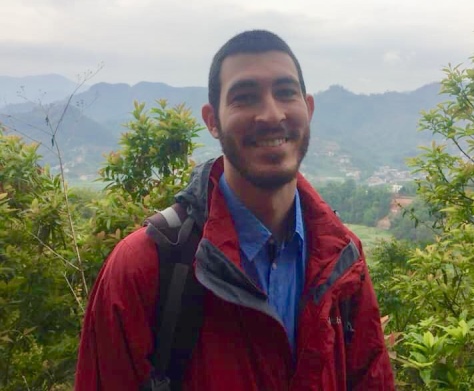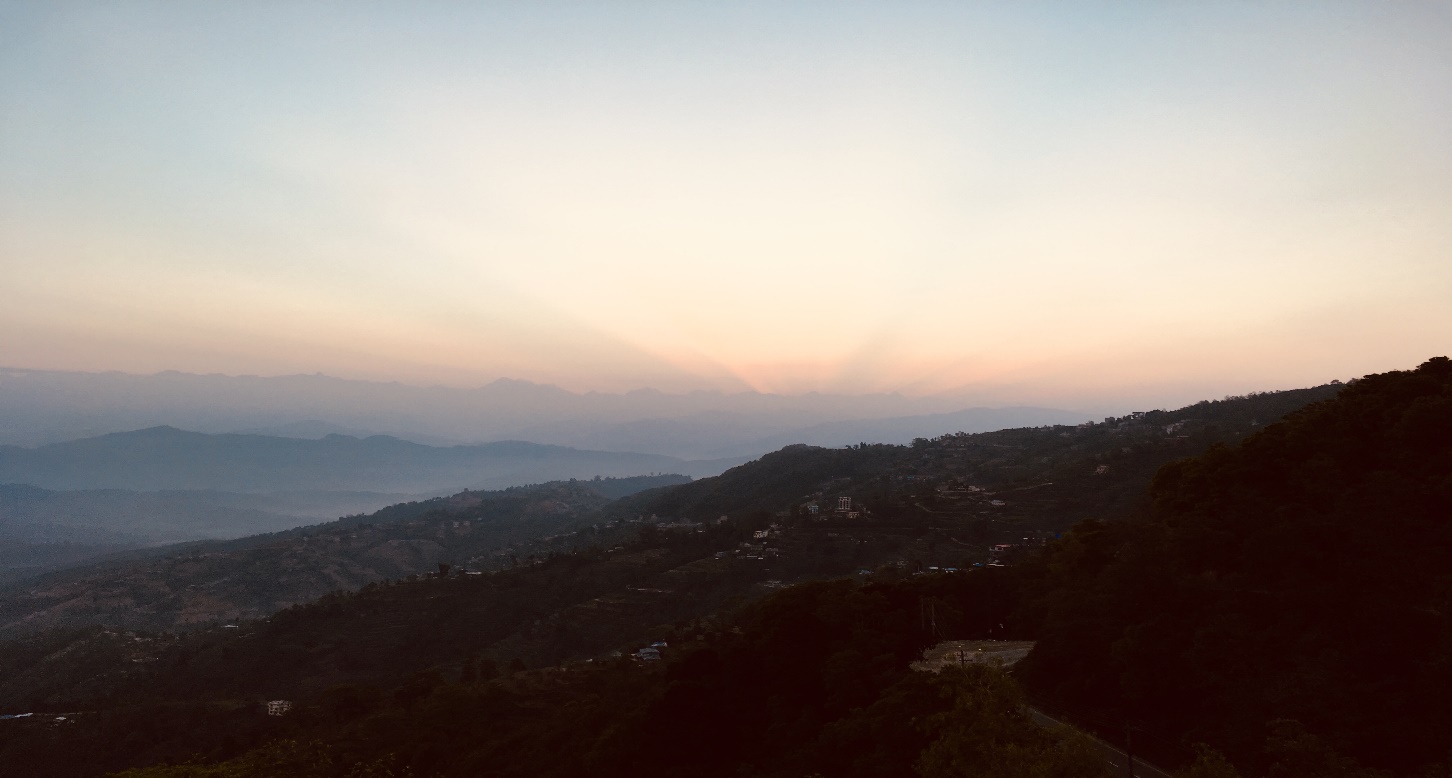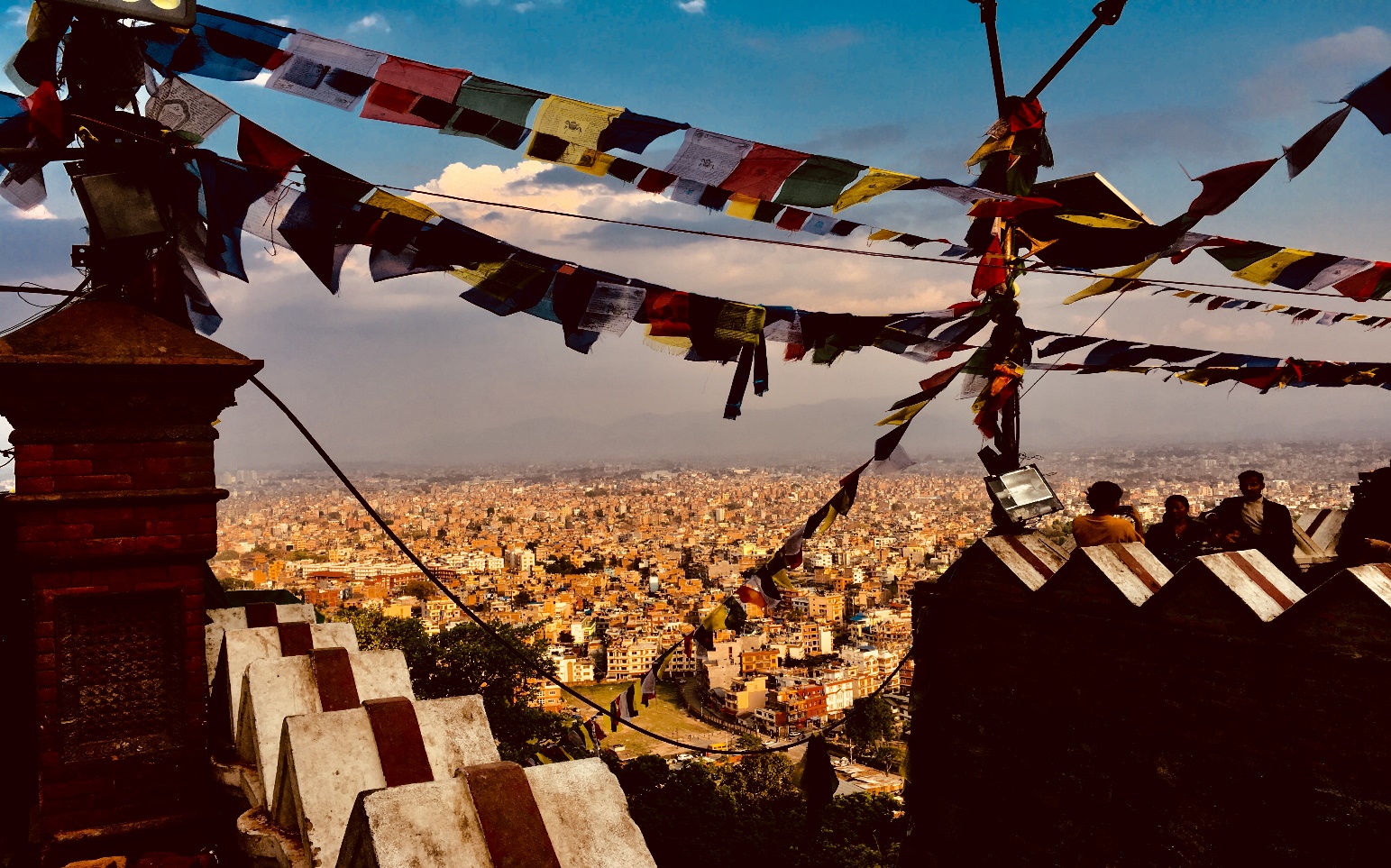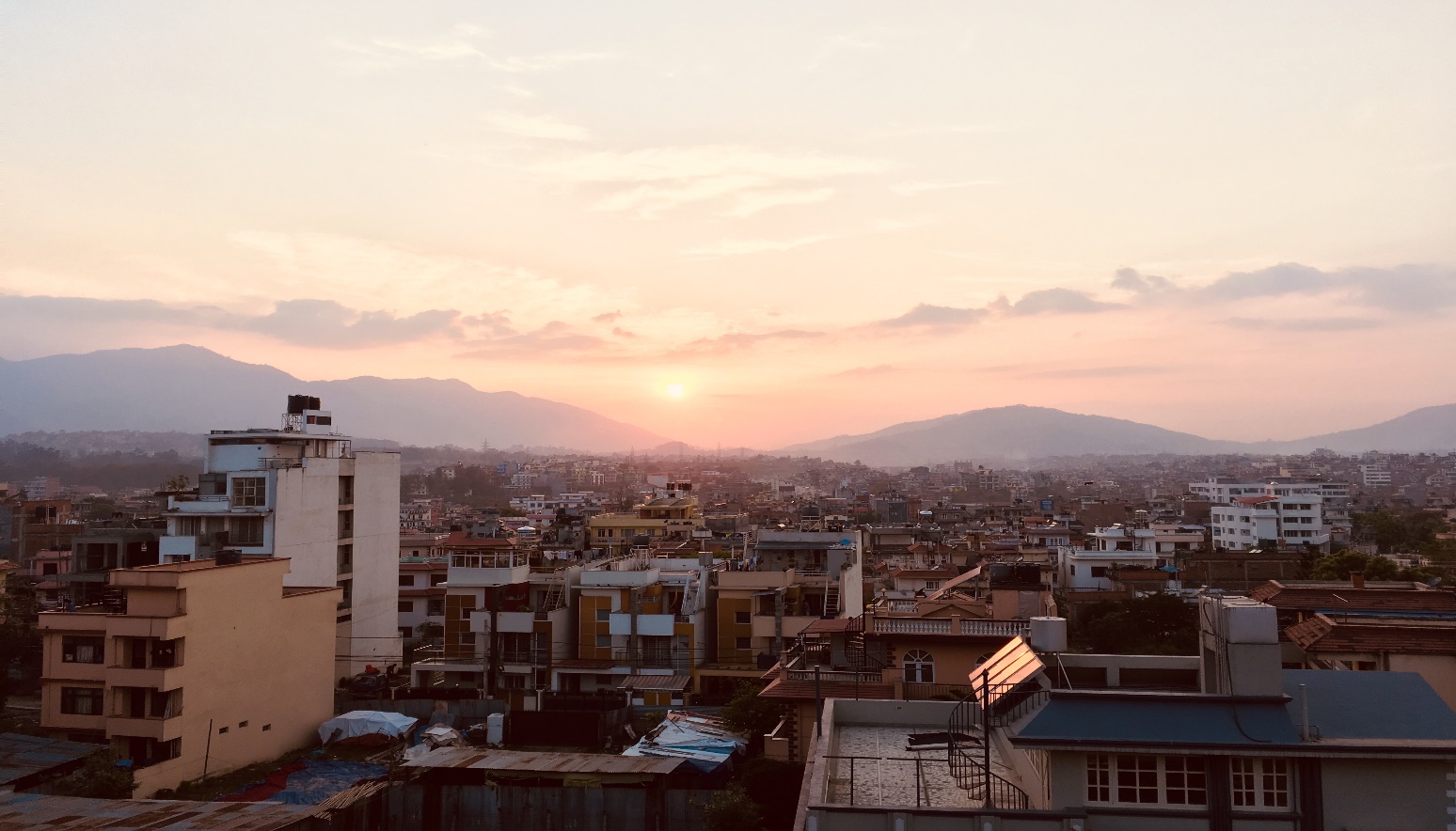Reflection for SIAS Beyond Informative: When Learning Becomes Transformative
 Peter Rowe Masters student at the University of Edinburgh
Peter Rowe Masters student at the University of Edinburgh
 Sunrise from Dhulikhel, Nepal, 24km ESE of Kathmandu
Sunrise from Dhulikhel, Nepal, 24km ESE of Kathmandu
Since returning home from Nepal four days ago, I’ve slowly returned to the normal rhythms of life. However, the ten days spent in Nepal are ones that I’ll never forget. The fullness, complexity, and beauty of Nepal provided the fertile foundation for a rich learning environment, and it is here where I’ll try (albeit imperfectly) to distil the larger lessons I learned during my time in Nepal.
Whilst in Nepal, much time was spent reflecting on positionality, both our positionality (as a group) and my positionality (as an individual). Though perhaps a subtle distinction, it is one I believe to be worth exploring, as the differences can often be revealing. Although we as a group shared countless experiences, each one was filtered through our own individual histories and worldviews, producing in each of us related yet distinct reactions. Throughout much of the trip, we as a group asked collectively ‘what is our role here as a body of students engaging in the ‘field’’?, hoping to come to terms with the sometimes extractive nature of research and field trips. Over the course of the trip, it became clear(er) to us that the learning we engaged with in Nepal was mutual, and that our role was to (mainly) absorb, but also to share, knowledge and experiences. As noted above, although we (the class) have learned and travelled as a group, we filter these experiences differently, meaning we each have our own distinct personal insights and knowledges, each individually adding bits of salt which combine to bring to fullness the flavour of a given situation. Intimately linked with a recognition of positionality is the notion of humility. On an individual level, one of the biggest lessons I came away from Nepal with is, to paraphrase the American author Wendell Berry, how often ‘I don’t know, I don’t understand, and I get it wrong’ (Berry 2005, 58). From my time in Nepal, I have come to realise that the end goal of the recognition of positionality (on an individual level) is humility, plain and simple. It is letting go of assumptions and preconceptions, and acknowledging that you may not (and most likely do not) have the perfect answer, that things aren’t as black and white as they seem from half a world away. Through physically spending time (albeit not much) in Nepal and learning from and alongside those working so hard to make a difference, the learning I experienced moved beyond merely informative, to transformative. All of the above, the experiences, the learning, the transformation, would not have been possible without our collaboration with SIAS. Not only did SIAS do an amazing job of ensuring that we learned about Nepal from a local and well-informed perspective, but also of creating and sustaining a space of innovative, creative, and mutual learning. I especially enjoyed being able to collaborate with current master’s students from Nepal, as this provided an enlightening as well as challenging (in the best way possible) perspective to our time in Nepal broadly and final project specifically. Without the brilliant job of SIAS, our trip would have lacked textures and flavours that now appear irreplaceable.
 Kathmandu from Swayambhunath Temple
Kathmandu from Swayambhunath Temple
Though the lessons I learned regarding positionality and mutual learning are invaluable, perhaps the most valuable lesson I left Nepal with is a reassurance that people are superficially different, and fundamentally similar. Despite our differences, at our most basic level, we all desire to love and to be loved, to give value and to be valued. But this unity does not imply uniformity, and nor should it. Doing so would dull the very real and rich cultural differences that knit together the diverse tapestry of humanity. However, recognising the real weight and power of our shared desires alongside our individual positionality is the foundation of moving forward, together, with renewed hope and vigour.
* Peter Rowe is Masters student at the University of Edinburgh. He participated SIAS – UoE Field course 2019
Publish date :-2019/05/06
“Views expressed here are personal and not associated with any affiliated organisations”


